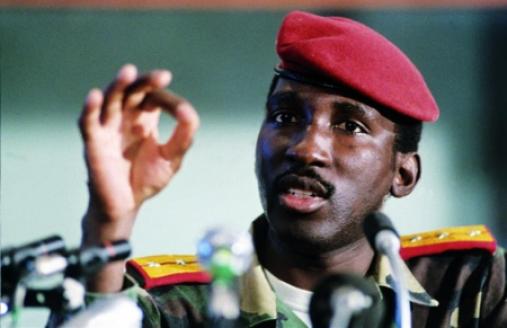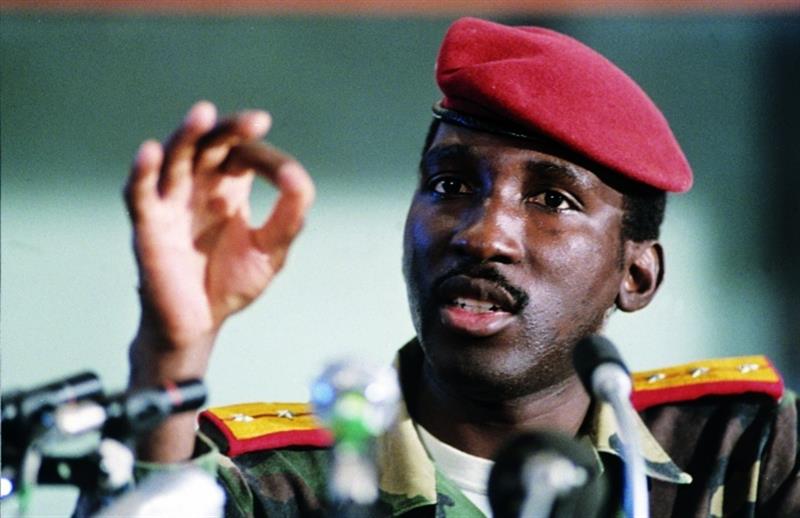Between the late 1950s to the late 1990s, the countries of Africa went through a transition period almost in all spheres, sectors, and areas of their existence. This period was a time when many countries had just gained independence, thus witnessing a taste of autonomous power and ownership for the first time after colonialism that had existed in almost all corners of the continent (except Ethiopia) since the late 1800s. Policies would be drafted, the country’s names would be changed, states would be created and above all, great men and women (who were both ethical and unethical) would rise up to the challenge of leading the “newly formed republics” across the continent into the future. In the midst of all these was a landlocked country called Burkina Faso in West Africa. A young man by the name of Thomas Isidore Noël Sankara would rise and go on to be one of the greatest leaders of the continent of all time.

At the age of 33, Thomas Sankara rose to power through a popularly supported coup in 1983. His government was built on the foundations of erasing corruption, anti-imperialist ideologies and being self-sufficient. This led to the renaming of the Upper Volta region to Burkina Faso which means “Land of Upright People.” Initially, people in this region were usually made to go and work in neighboring Cote d’Ivoire but in order to eliminate the mindset of heavy dependence on external influence, a rename was necessary. This rename had a psychological effect on the people and thus, the mentalities of people about being dependent on external countries were rebranded and changed. Thus, independence, hard work, uprightness, unity and collective responsibility became personalities that the people of Burkina Faso imbibed which played a huge role in the rebuilding of the landlocked country at that time.
Sankara made notable achievements in his four years rule as president of Burkina Faso. Inheriting a dilapidated and impoverished Burkina Faso, Sankara was able to bail the country out of impoverishment and under four years of his reign, Burkina Faso became self-sufficient in terms of producing, manufacturing and consuming its own food without any external influence! Sankara preached that African countries should strive to be independent on their own and because we are a rich continent with diverse resources, we have the power mentally and physically to be able to produce the things we need by ourselves and without the help of the West. Sankara drafted policies that drastically reduced the unnecessary spending of funds by government officials. In this light, he created a policy that required politicians to travel in economy class tickets and not first class and he also apportioned only one car to each official instead of a host of multiple cars as seen in neighboring West African countries like Nigeria and Ghana.

The period of Sankara’s reign was a time where all sorts of diseases were affecting the African people. Therefore, Sankara launched a campaign to eradicate polio, measles, and meningitis. 2.5 million people were vaccinated in one week! He also became the first president to launch a campaign against desertification. With his fellow citizens, he organized the planting of several million trees, a first on the continent. In office, another notable achievement of Sankara was the launch of the Battle of the Rails, a Railtrack project that would connect Ouagadougou to the Manganese mines several hundred kilometers up north. The uniqueness of this project is that since there were not enough funds to get the project started, Sankara was able to get the people of Burkina Faso to voluntarily participate and place the rail tracks with their bare hands. Today, the rails are still functional.
Furthermore, Sankara promoted women’s rights by allowing them to join the military and be trained alongside the men as well as create jobs for women. He outlawed female genital mutilation and appointed women to positions of power as well. Women empowerment was an issue that was not even on the agenda list of many other African countries but Sankara made it a priority. But his achievements were only short-lived as he was betrayed by a friend and assassinated in 1987.
You may be wondering that there were great African leaders who also had these attributes and achieved similar aims as well. How then is Sankara unique? Sankara’s ambitions and achievements remain legendary because it only took him four years to achieve all the things he did. Also, unlike many other African leaders who had several scandals against them that are still reverberating around today, Sankara’s records are clean and moreso, the record of his achievements (although the government that ousted him tried to hide all of his works), and the revolution that sparked out of the regime of the young president is well and alive in the minds of people that witnessed his regime. The French government and the West, in general, abhorred him because he wasn’t a puppet as he refused to succumb to their imperialist ideologies. That is why you never get to hear of Sankara from the Western media often as opposed to other African leaders. Hence, instead of relying on the Western media to propagate the achievements of Sankara, the people that he ruled up until today (that is people that experienced Sankara’s regime and thus, have the real, relevant information) testify of the good works and values that Sankara thought them.
In my opinion, Thomas Sankara remains the best president any African country has ever had and it might take a long time for any African country to be presented with a similar opportunity again through someone with similar values, optimistic ideologies and relentless courage like his.

He was a great man indeed….!